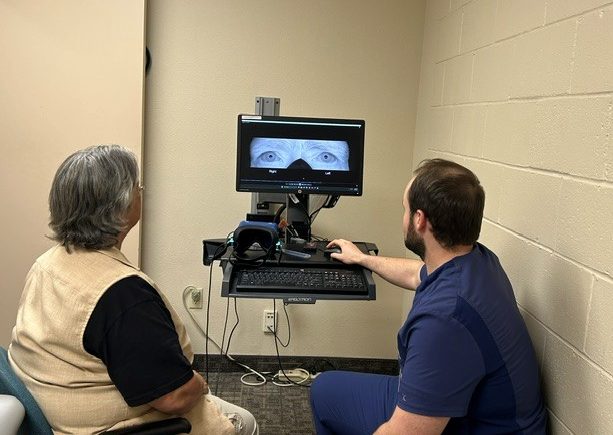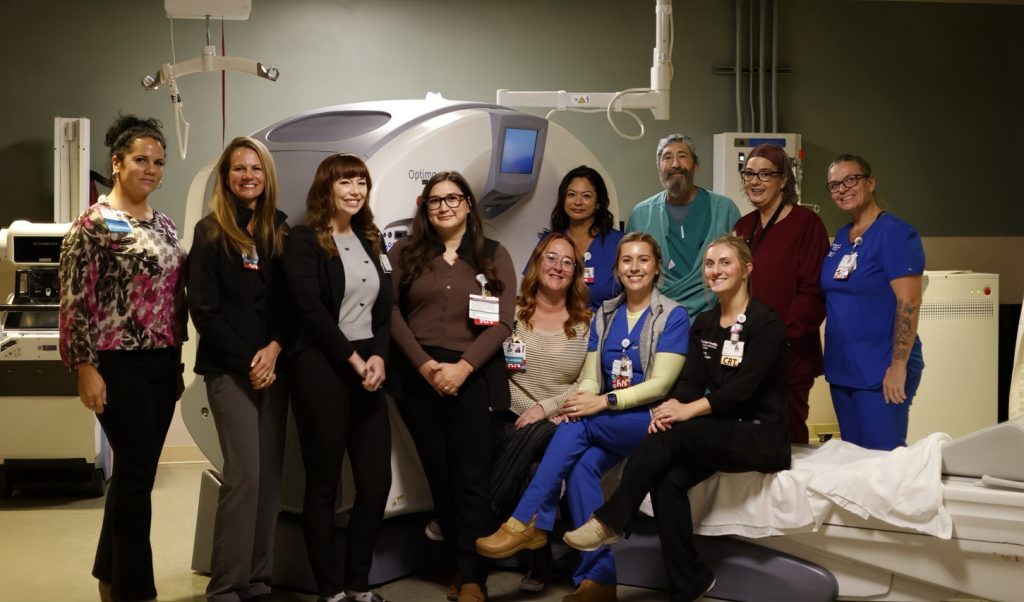By Emma Dugas, Vitals contributor
BURLINGAME, Calif. — Change can be sudden or slow, in this case it’s both. Sutter Health has been at the forefront of a decade-long journey to offer more patients with aortic valve stenosis an alternative to open-heart surgery. With new research presented last week at one of the world’s top cardiology meetings that goal seems achievable almost overnight.
Aortic stenosis is a serious cardiac condition in which the aortic valve in the heart narrows, limiting blood flow to the body. Doctors can treat aortic stenosis by replacing the patient’s faulty valve either during open-heart surgery or through a minimally invasive procedure called TAVR (Transcatheter Aortic Valve Replacement).

David Daniels, M.D.
It is estimated that 100,000 TAVR procedures have been performed over the past decade, yet open-heart surgery remained the standard of care. “This meant that I could only offer TAVR if open-heart surgery would put my patient at an unnecessarily high risk for complications,” said interventional cardiologist David Daniels, M.D., co-director of Sutter’s Structural Heart Program in the Bay Area and a Sutter Health clinician-investigator.
Recently a major clinical trial[1] showed that a reversal may be in order; going forward TAVR may be the routine treatment or ‘gold standard’ for aortic stenosis, and open-heart surgery may be the exception.
Sutter Health not only participated in the recently completed trial, but under a continued access protocol, three Sutter Health hospitals are able to continue offering TAVR to a broader group of patients—even while the U.S. Food and Drug Administration examines the trial’s data.
The three Bay Area hospitals participating in the continued access protocol are: Mills-Peninsula Medical Center (Burlingame), California Pacific Medical Center (San Francisco), and Alta Bates Summit Medical Center (Oakland).
“I want to stress that TAVR is not a new procedure. I’ve successfully treated over 950 patients with this technique,” remarked Dr. Daniels. “The new part of this is that we can now offer TAVR, which is done through a small incision in the groin, to even more patients than before—giving them an option that is often safer, and often has a faster recovery time, than open-heart surgery.”
A typical hospital stay for open-heart surgery is a week to 10 days. TAVR patients often go home within 24 hours and are back to their usual activities within a few days instead of six weeks or longer for open-heart surgery patients.
Remarkable Clinical Trial Results
Sutter Health’s cardiovascular teams have been involved with TAVR since its inception and have continued to pioneer the procedure as the artificial valves themselves have evolved. Over the years, several Sutter Health hospitals have participated in studies that confirmed the safety and efficacy of TAVR in patients who have intermediate or high risk of complication from open-heart surgery.
However, the most recent trial, called the PARTNER 3 trial, specifically looked at patients for whom open-heart surgery carries a relatively low risk of complications.[2]
Sutter Health affiliated combined sites Mills-Peninsula Medical Center (MPMC) and Alta Bates Summit Medical Center (ABSMC) were major contributors to the PARTNER 3 trial and the second largest enrollment site in the state (trailing Cedars-Sinai in Los Angeles). The Bay Area hospitals achieved a zero percent complication rate (one year post procedure) among low risk patients who received TAVR as part of the trial. Sutter Medical Center Sacramento also participated in the PARTNER 3 trial.
“The PARTNER 3 results are remarkable. There was a statistically significant 60 percent reduction in risk of death and stroke in TAVR compared to surgery, and this was carried out to one year,” Dr. Daniels remarked.
The study looked at rehospitalization associated with death, stroke or heart failure, and found that these negative results were 50 percent lower (half as likely) when the patient had TAVR instead of open-heart surgery. Beyond these results, there were significantly lower rates of renal failure, life threatening hemorrhage and reduced length of hospital stay among the patients in the TAVR group compared to the open-heart surgery patients.
The Future is Here
“Presently we are in the gap between the end of the PARTNER 3 trial and a decision by the FDA that might officially extend approval of TAVR to the low risk patient group,” explained Dr. Daniels. Today, the artificial valves used in the TAVR procedure are FDA-approved only for patients who are considered too old or frail to have open-heart surgery.
“We are proud to continue to offer the TAVR procedure to low risk patients as part of our participation in the valve manufacturer’s continued access protocol.” Three Sutter Health hospitals: Mills-Peninsula Medical Center, California Pacific Medical Center and Alta Bates Summit Medical Center — are the only facilities in Northern California currently participating in the continued access protocol.
“Common sense told us that even patients with a low risk of complications from open-heart surgery may benefit significantly from treatment with TAVR instead,” Dr. Daniels said. “Results from the PARTNER 3 trial indicate that, for many patients, this has proven to be true. We are pleased to be able to offer TAVR to all patient risk groups.”
These groundbreaking clinical results are an example of how Sutter Health is leading the transformation of healthcare. If you are suffering from severe aortic valve stenosis talk to your cardiologist to see if valve replacement with TAVR is right for you.
[1] Mack MJ, Leon MB, Thourani VH, et al. Transcatheter aortic-valve replacement with a balloon-expandable valve in low-risk patients. N Engl J Med. 2019 Mar 17. doi: 10.1056/NEJMoa1814052. [Epub ahead of print]
[2] The PARTNER 3 trial was sponsored by the makers of the Sapien artificial valve, Edwards Lifesciences of Irvine, Calif. Dr. Daniels is a consultant for Edwards Lifesciences.





